
Midnight Majesty Maran Egg Color Hasma
About Marans Chickens. This dual-purpose breed originated from a port town called Marans in France. Despite the fact Marans were originally created for meat production, this breed is now best known for the dark, rich chocolate brown eggs they are capable of laying. You will find not all Marans lay the same shade of brown egg.

Photo Gallery Raising backyard chickens, Maran chickens, Hatching chickens
Black Copper Marans are renowned for their very dark brown/chocolate eggs. All Maran's birds lay a dark brown egg, but the Black Copper is sought after, its' egg color being especially 'chocolate.'. The fewer eggs a Black Copper hen lays, the darker the color. If your hen is a good layer, you will not get the darkest color on the eggs.
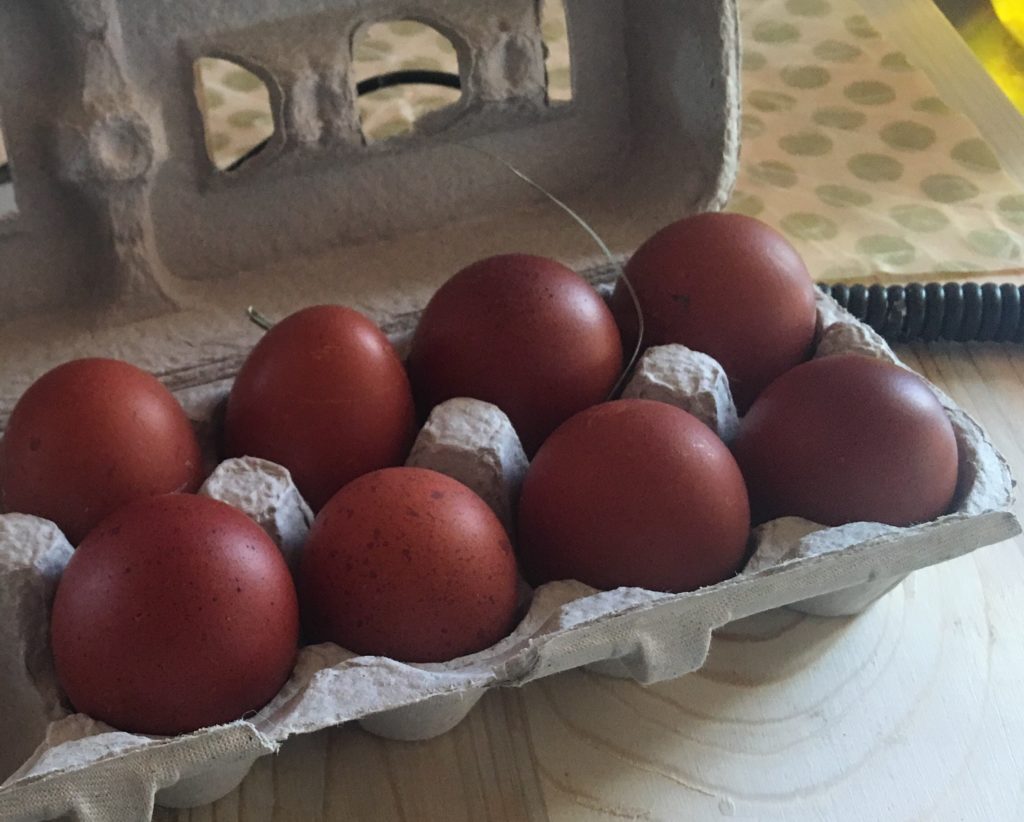
Black Copper Marans Hatching Eggs Wheaton Mountain Farm
Wheaten & Birchen lay very dark reddish-brown, copper eggs which average a 7 on the Marans egg-color chart. Golden & Silver Cuckoo Marans' eggs are described as dark chocolate brown, reddish-brown, or copper brown and can be speckled. Blue & Blue Copper Marans chickens thought to be a slightly more friendly variety and also lay very dark eggs.

Our first black copper maran egg here on the farm. chickens farmfresheggs Raising chickens
The Marans may perhaps be one of the most popular chicken breeds in the US currently. Thanks to Instagram, many flock owners strive for a flock that produces a rainbow of egg colors, and these breeds can lay one of the darkest brown eggs you've ever seen.. Origin. The Marans breed originated in Marans, France, in the early 1900s, which is how the breed got its name.

Eggs from French Black Copper Marans. Fancy chickens, Live chicken, Pet chickens
characteristics. Marans chickens are rather large chickens. They're a dual-purpose breed that is kept both for eggs and meat and heavier than pure egg layers like ISA browns or white leghorns. A hen weighs around 5,5 pounds (2.5 kg), and roosters weigh approximately 8,5 pounds (4 kg). They also come in a Bantam variety, where the hen weighs.
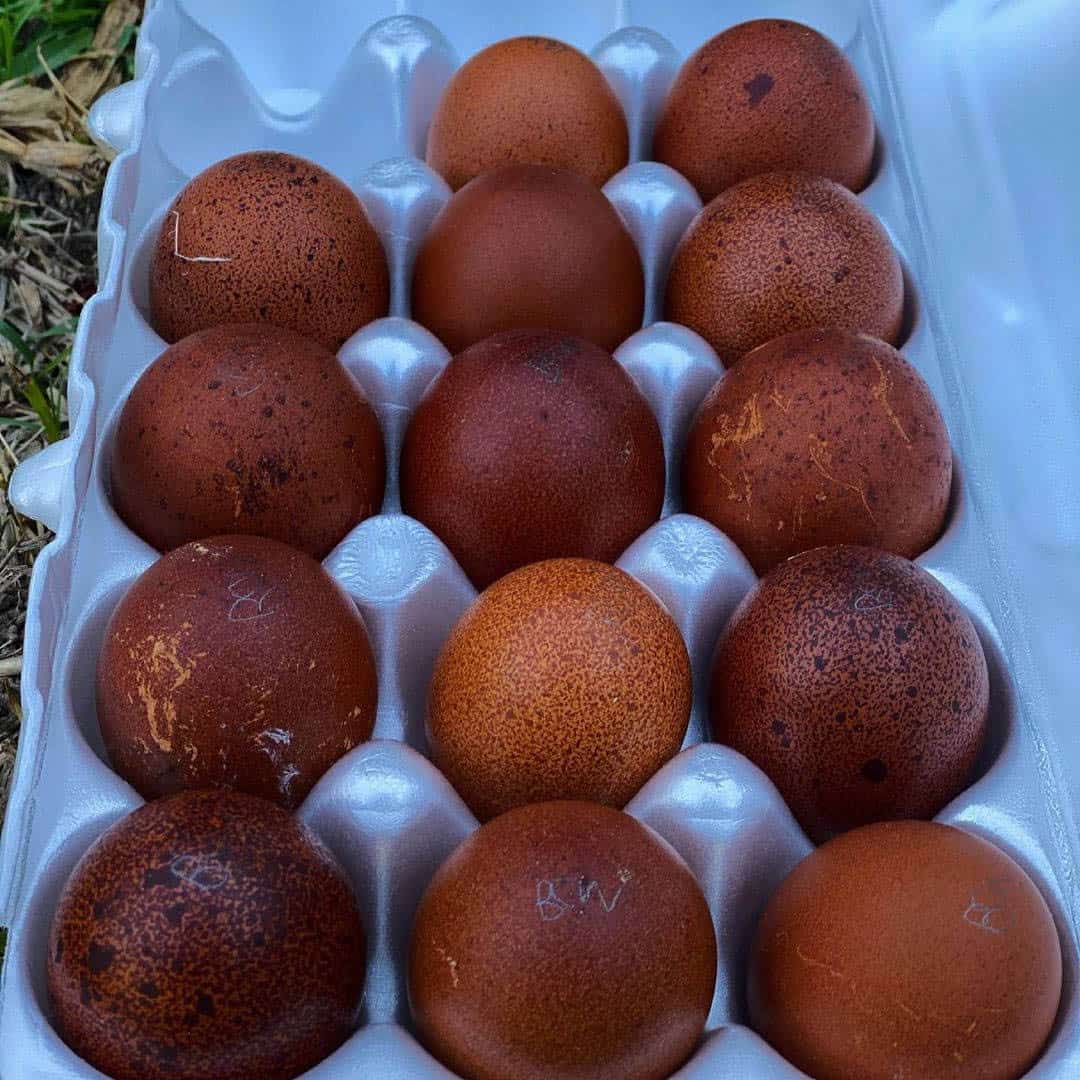
Black Copper Marans History, Appearance, Eggs and Care
A single chicken is a Marans and multiple chickens are still Marans. Along that same line, eggs are called Marans eggs not Maran eggs. I know it seems a little odd, but that sometimes happens when proper names are adopted for native products. Interesting reading: Marans, France.
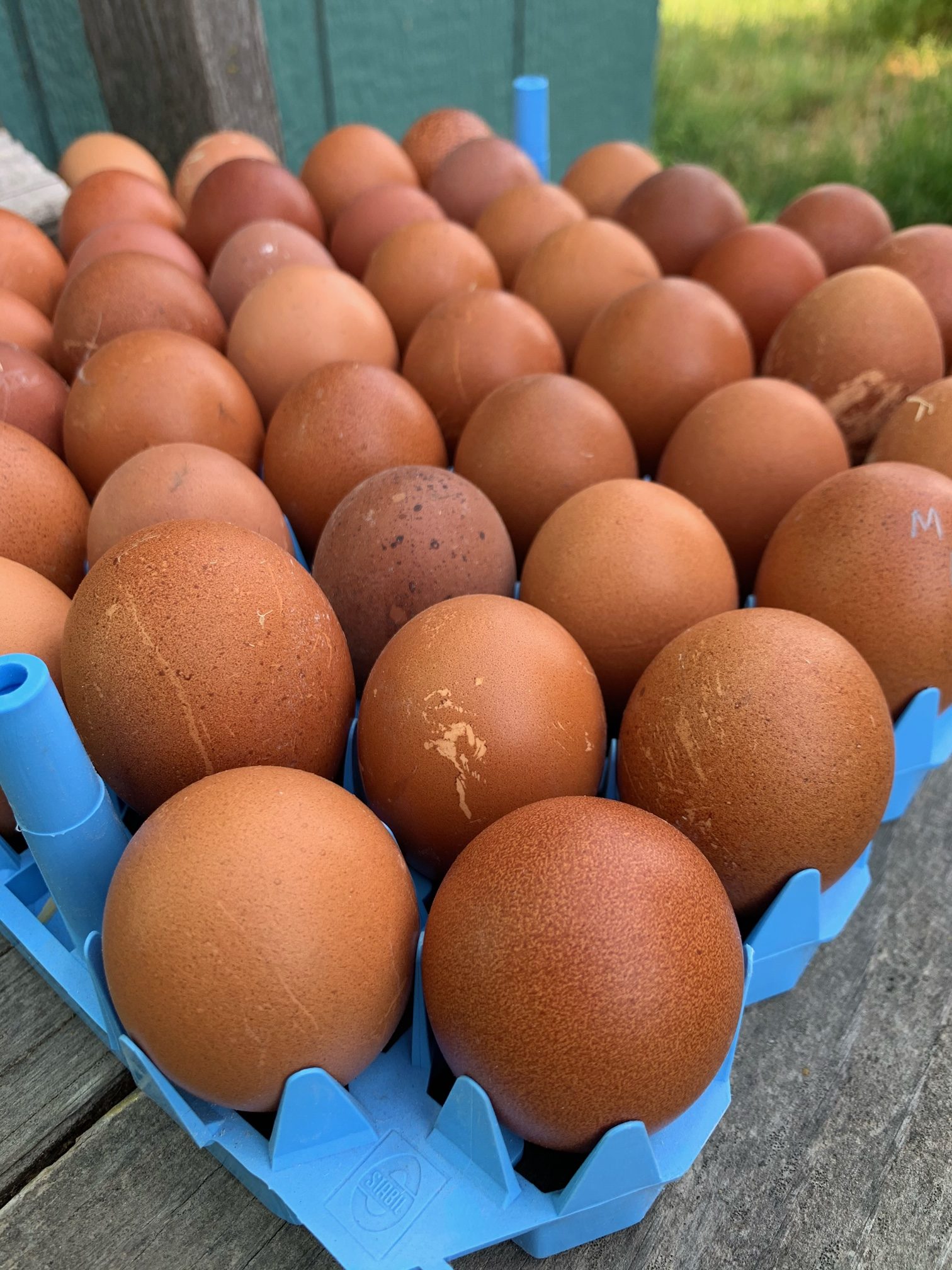
Individual French Black Copper Marans Hatching Egg Alchemist Farm
Egg production. One of the main reasons why Marans are a popular breed of chicken is because of their eggs. They lay deep brown eggs. If the hens are taken care of very well, they can lay between 160-210 eggs in a year. This means that they can lay four eggs in a week. The rate of production may be lower if you are looking for really dark brown.
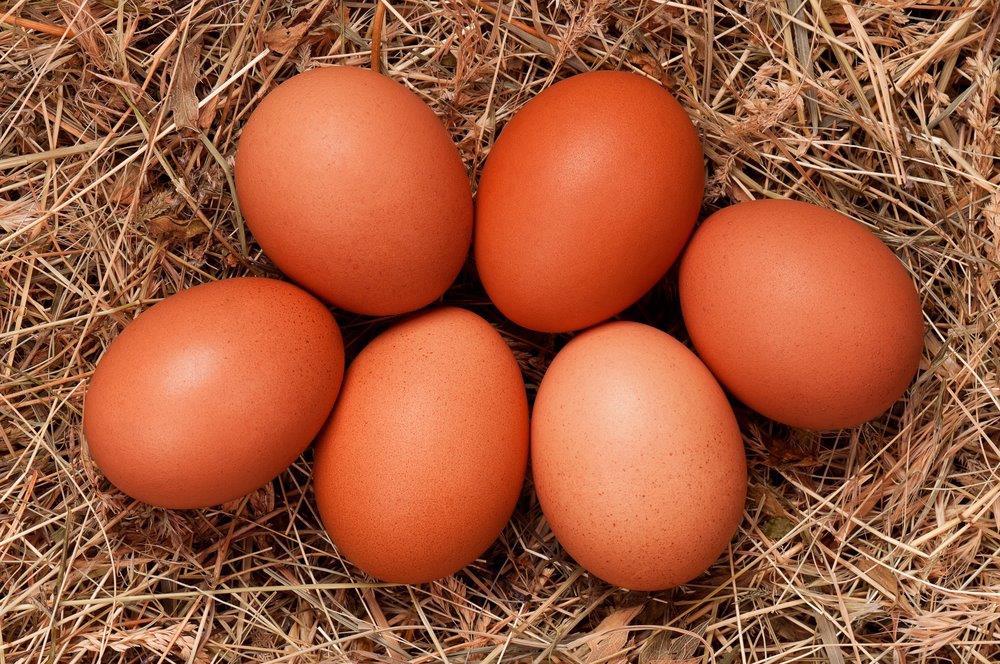
French Black Marans Dark Brown Egg Layer Cackle Hatchery
Whenever you first get your Marans chicken, feed it growers mash. This is easily ingested and has a high amount of protein. After the chicken is about 6 weeks old, you can feed them pellets mash, which has about 16% protein. Once your Marans is 18 weeks old, it will likely need more nutrients for egg production.
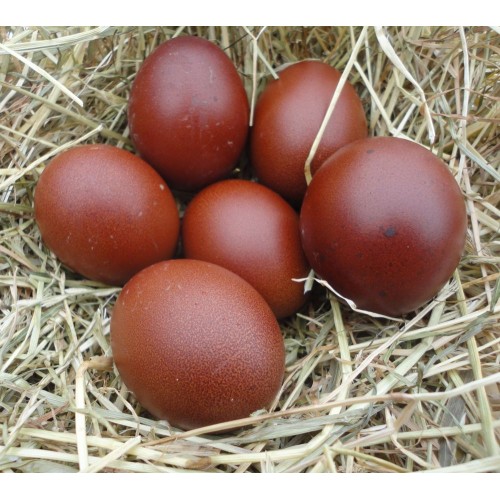
Cuckoo Maran Black Copper Maran Eggs malaymuni
Eggs. 1) Marans usually lays 150 eggs in a year. 2) Marans lay dark brown eggs, but the taste of their egg is similar to that of white or other brown eggs. 3) French stain of Marans lays dark eggs than their UK version. 4) The black copper variation Marans is rare and their eggs are darkest when compared to other breeds.

Fertile Black Copper Marans Eggs (6 for 55 or 12 for 110) Thornfield Poultry
History and Origins of the Mystic Marans. The Mystic Marans Chicken originated from the Czech Republic, after breeders crossed a Black Copper Maran male and a Barred Rock female. The Black Copper Maran chicken breed first appeared in the early 1900s. It's a hybrid of Landrace and barnyard chicken. And it stands out for its attractive plumage.
French Copper Marans Chickens The Chocolate Egg Layers Fresh Eggs Daily®
By William Morrow - Marans chickens are synonymous with chocolate brown eggs. Marans chickens originated in the French village of the same name about 240 miles southwest of Paris or 100 miles north of Bordeaux. Marans is a port town in the Bay of Biscay. A steady supply of trade ships over the centuries brought with them new breeds of poultry.
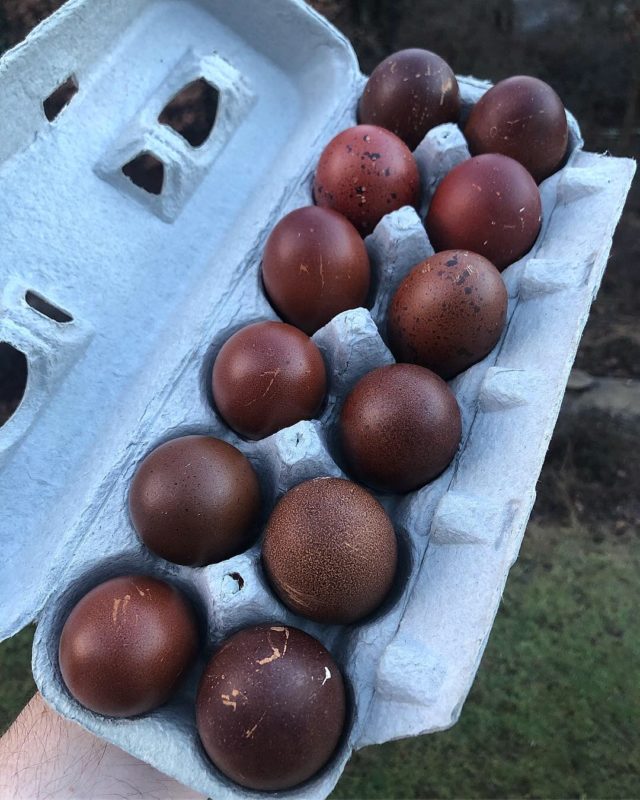
About Marans Chickens French Chocolate Colored Egg Layers
Marans chicken is a desirable breed because of it's rich chocolate brown colored eggs. It is a dual purpose breed and raised mainly for it's unique egg color and beautiful appearance. It was developed in France in the mid 1800s in the town of Marans. This breed bears it's name from the town name Marans, where it was developed.
Murano Chicken Farm Marans Egg Facts
Breed Name: Marans (Pronounced: MUH-RAN the "s" is always present but usually silent) Breed Type: Continental. Temperament: Friendly. Size: Medium. Eggs Per Year: 150-200. Egg Size: Large. Egg Color: Chocolate to russet brown. Lifespan: about 8 years. Time To Maturity: 5-6 months.
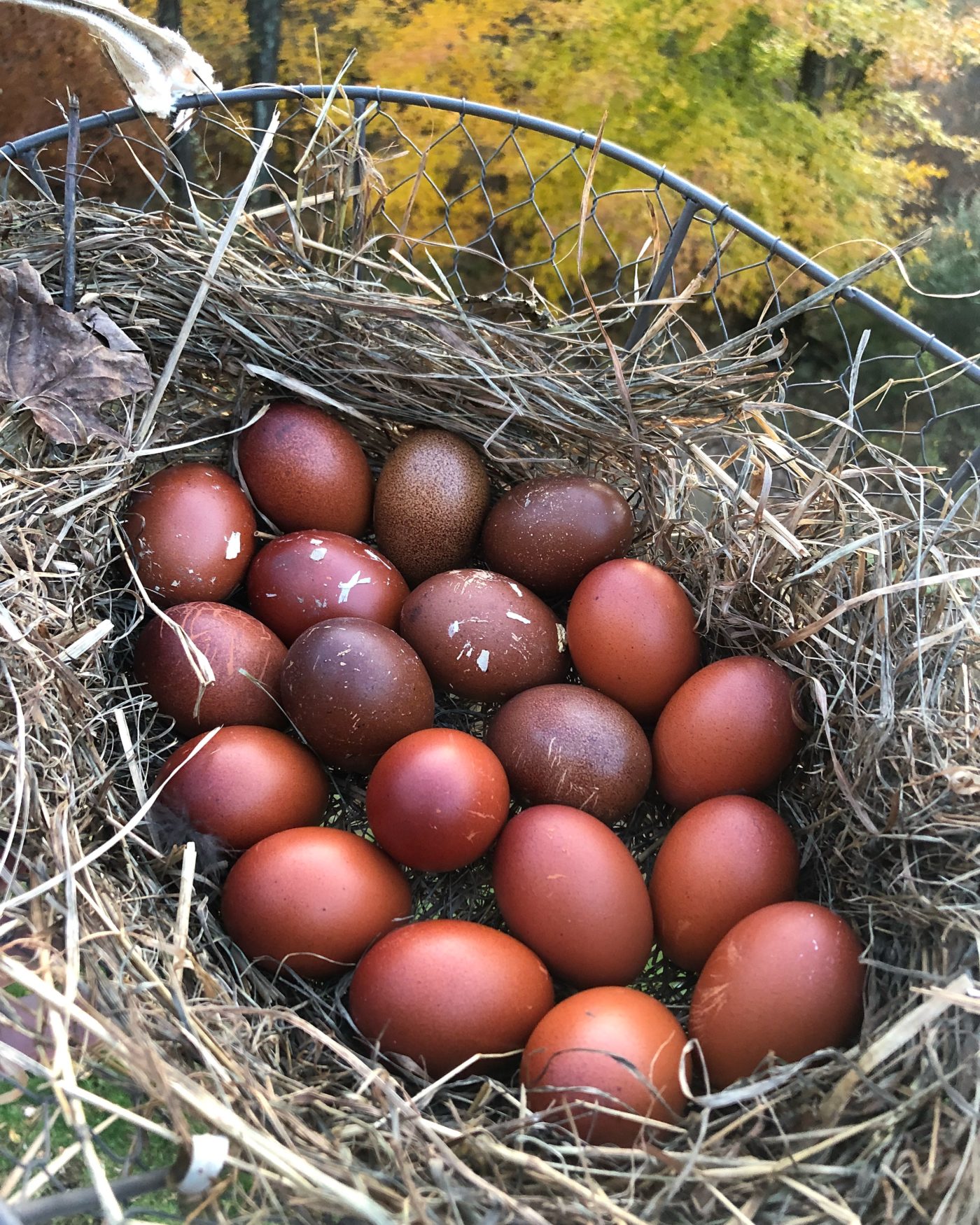
About Marans Chickens French Chocolate Colored Egg Layers
1. White Marans. White Marans are wonderful small farm and backyard chickens. These chickens are known for laying lots of lovely-looking dark brown eggs. Although Black Copper Marans and Cuckoo seem similar to white Marans, the latter is an excellent variation of Marans. White Marans are large, full-bodied chickens.

Black Copper Maran Chicken Hatching Eggs for Sale Buy Black Copper Maran Chicks
They lay about 150 eggs a year. Being dual-purpose birds, they lay beautiful dark-colored eggs, but they make excellent table birds as well. Marans chickens have a single comb. The Marans Cocks weight around 3.6 Kg and the hens about 3.2 kg. The bantam cocks will weight between 500-550 g with the hens around 400-450 g.
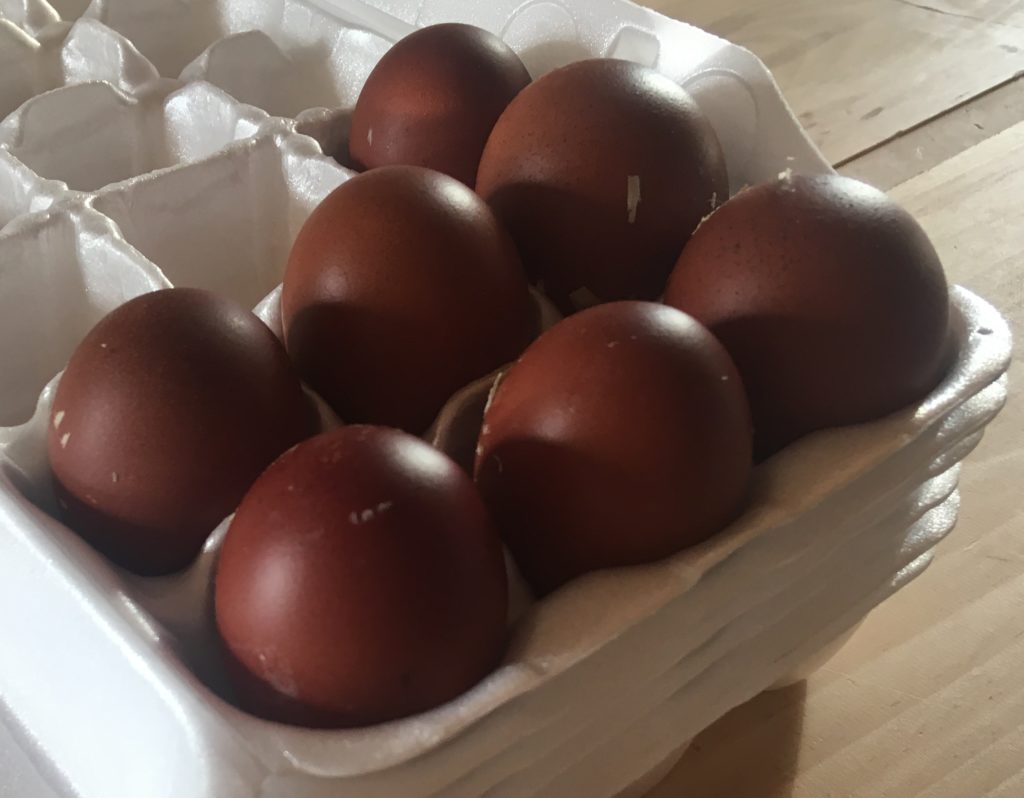
Black Copper Marans Hatching Eggs Wheaton Mountain Farm
What are Marans chickens? Marans chicken facts. Category: Pet, eggs, & meat Origin: France Egg-laying ability: Good Broodiness: Low-moderate Meat production: Good Cold tolerance: Poor-good (depends on comb size) Heat tolerance: Moderate-good Predator evasion: Good Foraging ability: Good Toleration for confinement: Good Temperament: Friendly Aggression toward flock members: Low-moderate